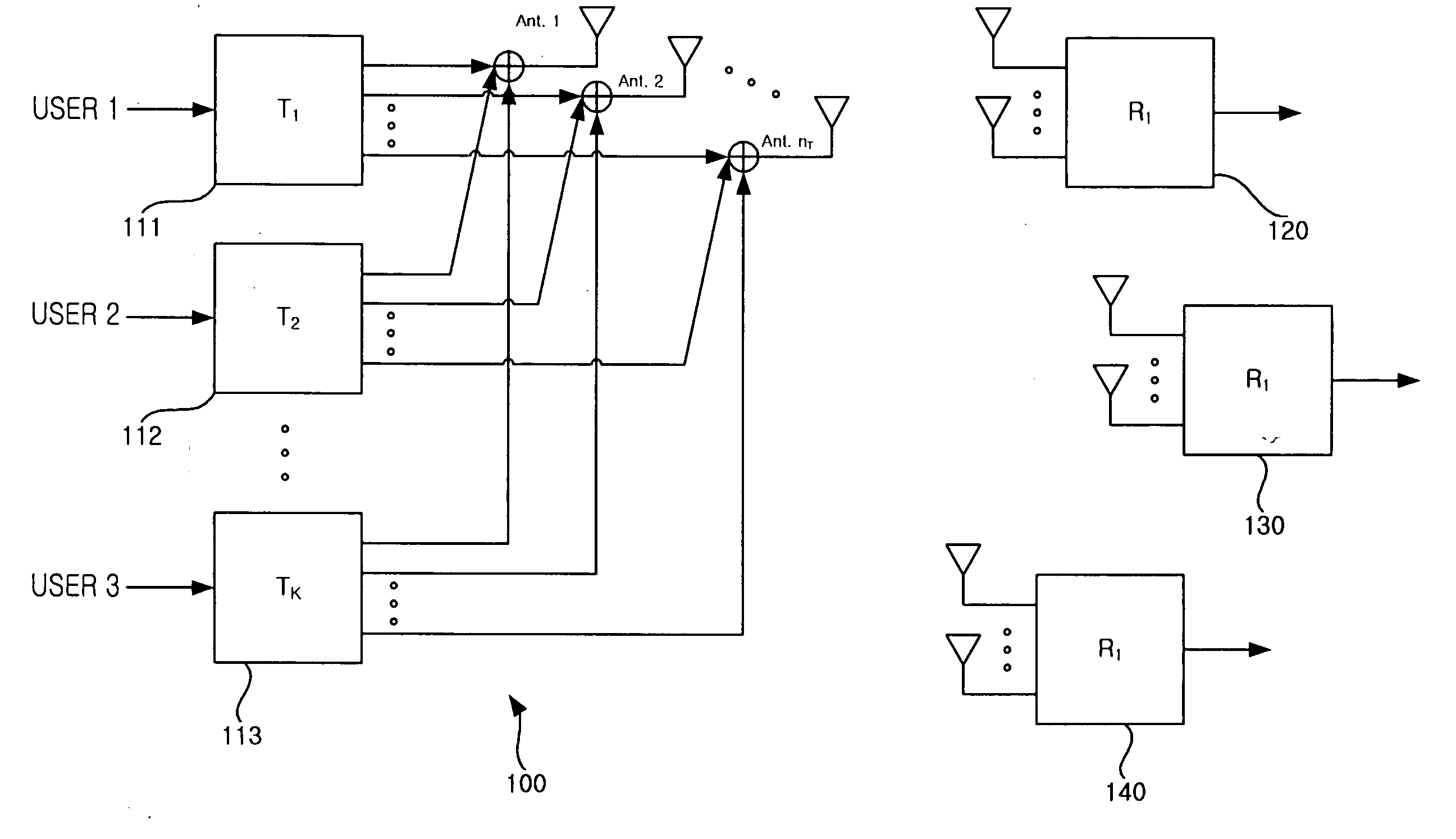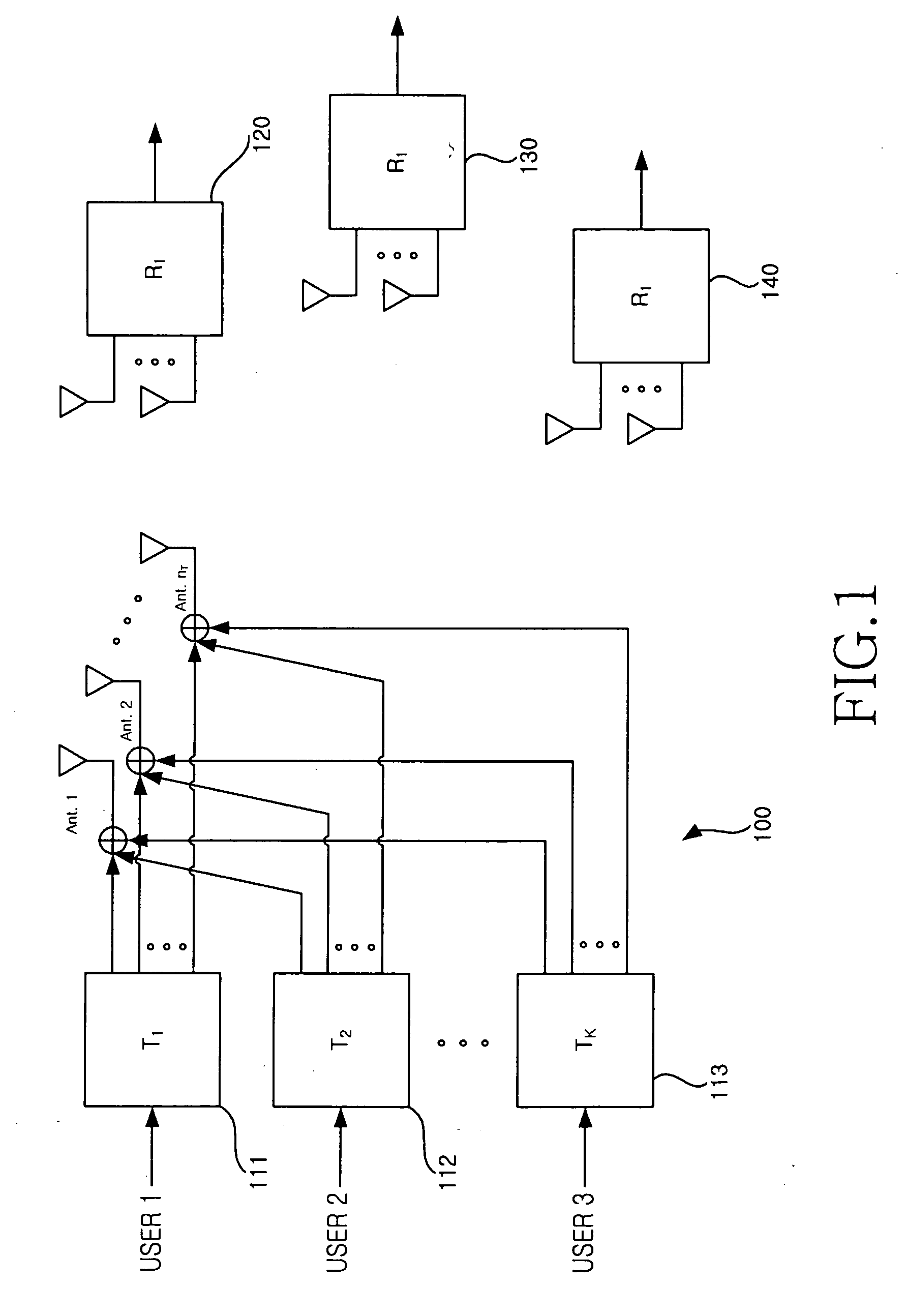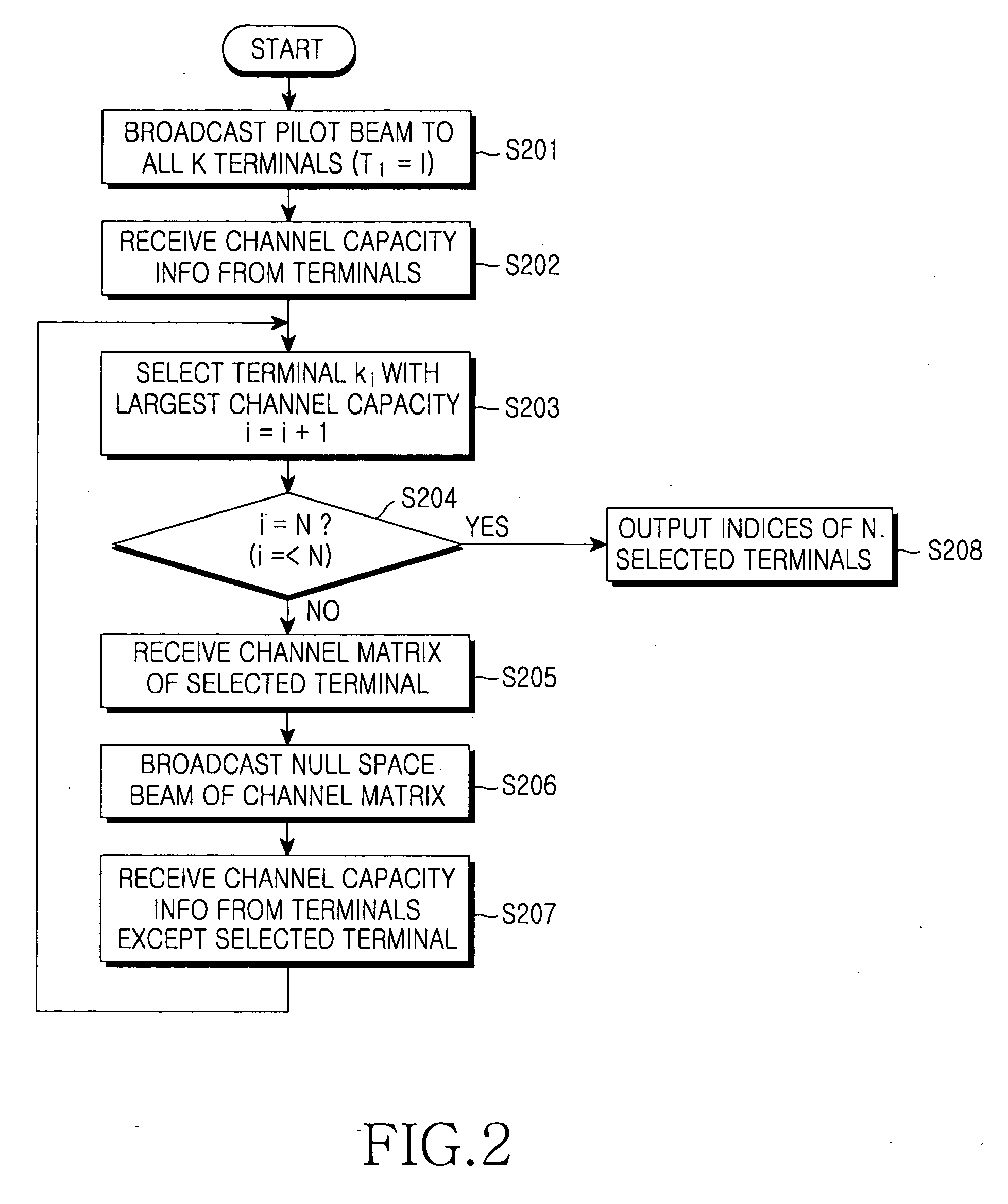User selection method in a zero-forcing beamforming algorithm
- Summary
- Abstract
- Description
- Claims
- Application Information
AI Technical Summary
Benefits of technology
Problems solved by technology
Method used
Image
Examples
Embodiment Construction
[0030] Hereinafter, a user selection method in accordance with the present invention will be described in more detail with reference to the accompanying drawings.
[0031] The present invention considers two channel models, i.e., a Distributed Antenna System (DAS) and a conventional Co-located Antenna System (CAS).
[0032] The DAS indicates a Dynamic Window Constrained Scheduling (DWCS) environment with completely distributed antennas and the CAS indicates one antenna cluster of the DWCS environment with distributed clusters. As is known, the DWCS environment with the distributed clusters exhibits a high peak transmission rate. Assuming that the number of transmit antennas is M, the number of receive antennas of different user terminals is N, flat fading and quasi-static channels are taken, and channels between user terminals are independent, a received signal can be expressed as shown in Equation (1).
Yk(t)=Hw,k(t)Fk(t)Xb(t)+Wk(t),kεK Equation (1)
[0033] where X is a transmit signal,...
PUM
 Login to View More
Login to View More Abstract
Description
Claims
Application Information
 Login to View More
Login to View More - R&D
- Intellectual Property
- Life Sciences
- Materials
- Tech Scout
- Unparalleled Data Quality
- Higher Quality Content
- 60% Fewer Hallucinations
Browse by: Latest US Patents, China's latest patents, Technical Efficacy Thesaurus, Application Domain, Technology Topic, Popular Technical Reports.
© 2025 PatSnap. All rights reserved.Legal|Privacy policy|Modern Slavery Act Transparency Statement|Sitemap|About US| Contact US: help@patsnap.com



